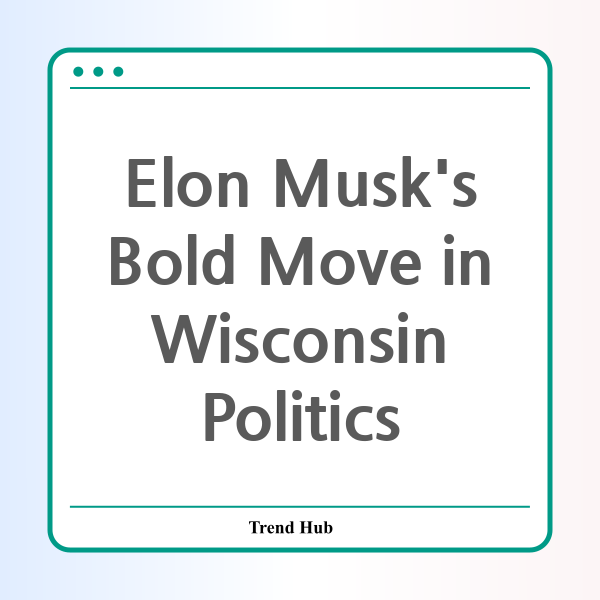* This website participates in the Amazon Affiliate Program and earns from qualifying purchases.

What happens when technology giants mix with state politics? The recent events in Wisconsin surrounding billionaire Elon Musk's involvement in the Supreme Court race have stirred significant debate, raising questions about the influence of money in politics and the implications for the state's judicial future.
Recently, Musk made headlines by distributing $1 million checks to two voters during a town hall event in Green Bay, Wisconsin. This unusual act was positioned as a means to support conservative candidate Brad Schimel in a critical Supreme Court election. The payments came after the Wisconsin Supreme Court declined to entertain a request from Democratic Attorney General Josh Kaul aimed at halting these transactions, which he argues violate state laws against financial inducements to vote.
As Musk continues to gain media attention for his audacious political maneuvers, it's essential to understand the broader context of this election. The Wisconsin Supreme Court's ideological balance is at stake, potentially influencing significant issues like redistricting and voting laws that will affect the state's political landscape for years to come.
Musk has reportedly spent over $20 million in support of Schimel, indicating a substantial financial commitment to sway public opinion. On the other hand, liberal candidate Susan Crawford and her supporters have protested against Musk's involvement, illustrating the deepening divide between political factions in Wisconsin.
This election sets a record for spending, with over $81 million already contributed. Such unprecedented financial backing has led many to question the integrity of elections when wealthy individuals can exert considerable influence over political candidates and their platforms.
Many critics of Musk's payments argue that they represent a dangerous precedent, blurring the lines between financial support and voter bribery. However, Musk's legal team defends the payments as a form of free speech, claiming that they are meant to foster grassroots support against what they term activist judges. This defense underscores the complexities of navigating political finance laws and the protections afforded under the First Amendment.
The implications of Musk's actions extend beyond Wisconsin. As technology continues to intertwine with politics, the potential for billionaires to directly impact elections raises ethical questions about the future of democratic processes. Are we witnessing a new era where the voices of the few outweigh the many, or is this simply a reflection of a changing political landscape?
As the Wisconsin Supreme Court election approaches, all eyes will be on the outcomes of these high-stakes financial strategies. The potential ramifications of this election could shape the state's political framework and influence rulings on fundamental issues affecting voters across Wisconsin.
In conclusion, Elon Musk’s dynamic entry into Wisconsin politics exemplifies the intersection of wealth and influence in elections. With significant funding and a strong media presence, Musk’s actions serve as a case study for examining the evolving role of money in politics and the critical conversations surrounding voter rights, judicial independence, and the democratic process.
* This website participates in the Amazon Affiliate Program and earns from qualifying purchases.